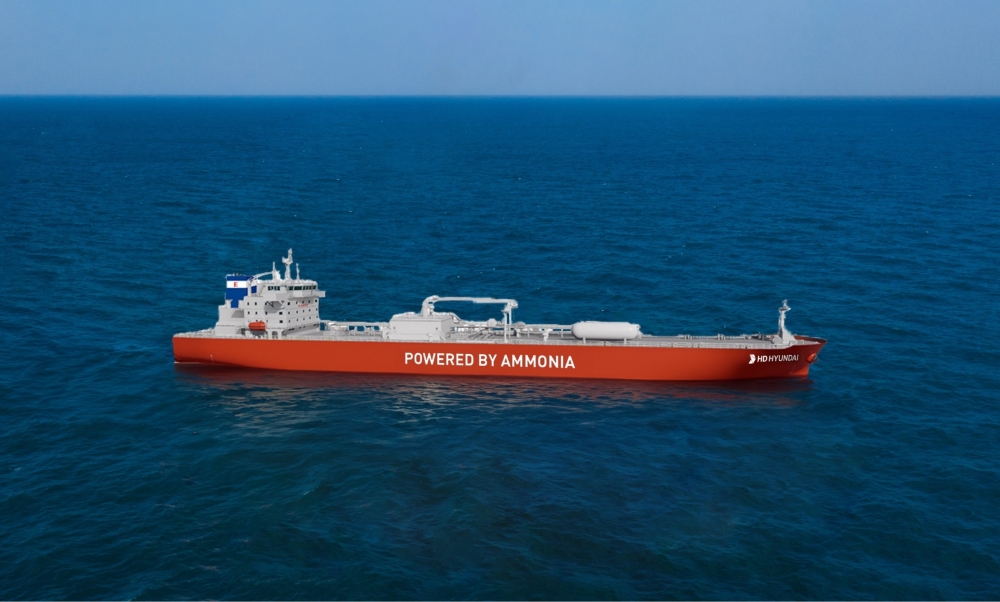Order book for alternative-fueled vessels grows in 2023
By Julian Atchison on January 16, 2024
DNV, Clarksons report first “ammonia-fueled” vessel orders

Clarksons Research and DNV have provided their analysis of global ship orders for 2023, with alternative fuel propulsion taking an increased role. DNV’s Alternative Fuels Insight (AFI) platform found a total of 298 ships with alternative fuel propulsion were ordered last year: an 8% increase year on year. Methanol and LNG ran “neck and neck” with 138 and 130 orders respectively, but 2023 “marked a breakout year for ammonia”, with 11 orders. The first ammonia-fueled orders tracked by DNV were a pair of midsize gas carriers ordered by EXMAR in October 2023. The DNV analysis also notes that container ships and car carriers account for the biggest share of alternative fuel vessel orders.
As we navigate towards a greener maritime future, the growing demand for alternative-fueled vessels speaks volumes. These orders send pivotal signals to fuel providers and other important partners on shipping’s decarbonization journey. While it is clear that the maritime fuel technology transition is already underway, we now need to ensure the fuels powering these engines become available.
Knut Ørbeck-Nilssen, CEO Maritime at DNV in his organisation’s official press release, 9 Jan 2024
Investments in alternative-fueled vessels have been heavily driven by the container and car carrier newbuild boom over the last three years. It remains to be seen if this trend continues into 2024.
Martin Wold, Principal Consultant, DNV Maritime Advisory business in his organisation’s official press release, 9 Jan 2024
As reported by media outlet Offshore Energy, Clarksons Research has tracked successive years of growth in orders for alternative-fueled vessels. In terms of newbuild orders by gross tonnage, 49% of orders were for alternative fuel propulsion in 2023, slightly down from the record 55% in 2022, but still an increase from 31% in 2021, 27% in 2020 and just 8% in 2016. Clarksons tracked 4 ammonia-fueled orders in 2023. “Future optionality” remains a priority over fuel choice, with a high number of the new build fleet holding a “ready” status for a different fuel (Clarksons reports 579 in the total new build fleet ave LNG “ready” status, 322 ammonia “ready” and 272 methanol “ready”).
2023 was a hugely significant year in the shipping industries decarbonization pathway, with new regulation entering into force and a net zero commitment agreed at IMO. And while we remain only at the start of a vital and unprecedented fleet renewal investment program, a start has been made with 49% of current orderbook tonnage now alternative fuelled.
Steve Gordon, Global Head of Clarksons Research, quoted in “Clarksons: 45% of ships ordered in 2023 embrace alternative fuels, with LNG still in the lead” (Offshore Energy, 3 Jan 2024)
GMF: orderbook still needs to grow dramatically to meet 2030 targets
In their recent report Climate Action in Shipping, Progress towards Shipping’s 2030 Breakthrough, UMAS & the Global Maritime Forum found that, despite “headline grabbing orders”, the current order book trajectory may only deliver one-fifth of the needed vessels to achieve the IMO’s 2030 target for alternative fuel uptake. The report also suggests that confirmed alternative fuel production capacity is about one-quarter of what is needed to meet the 2030 target, but the entire project pipeline could be up to twice as much as is needed for the shipping sector. Progress on policy across the IMO member states & industry stakeholders is cited as the key to achieving these targets.
The last 12 months have seen a positive shift in maritime decarbonisation efforts. Now is the time to see strong progress in terms of commitment for zero carbon fuels and freight from the industry so that the needed rapid scale-up of these fuels in the energy mix is achieved.
Dr Domagoj Baresic, Research Associate at UCL and Consultant at UMAS in GMF’s official press release, 18 Oct 2023